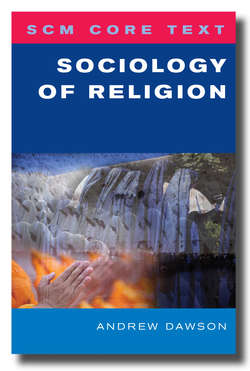Читать книгу SCM Core Text Sociology of Religion - Andrew Dawson - Страница 14
На сайте Литреса книга снята с продажи.
Society
ОглавлениеThe concept of society is the beating heart of sociological analysis. The word society (from the Latin societas) was around long before it was co-opted by early social theorists such as Auguste Comte (1798–1857) and used to designate ‘sociology’ as the ‘science of society’ (Seidman, 2004, pp. 11–21). When used sociologically, though, society denotes the totality of the social world whose individual inhabitants occupy any number of collective institutions (family, class, interest-group, religion), whose interactions are structured relative to a range of overarching processes of both a material (economic, political, legal) and symbolic (common knowledge, tradition, morality) kind. Ultimately, what distinguishes one type of society (such as modern/urban-industrial) from another (such as medieval/feudal) is:
they have different kinds of institutions;
these institutions interact in different ways; and
this interaction is orchestrated by different forms of material and symbolic structure.
In respect of different kinds of institutions, the modern family unit, for example, has very different characteristics from feudal kinship structures. Whereas medieval families tended to be extended, tightly knit, categorically heterosexual, and functioning economic units, the modern family is typically nuclear, diffuse, more varied in gender and number, and characterized as principally domestic in character. At the same time, because the economic, legal and political structures of feudal society reflected an aristocratic, religious, agricultural, and strictly hierarchical worldview, the medieval family’s interaction with other social institutions was of a very different kind from that of the modern family.
